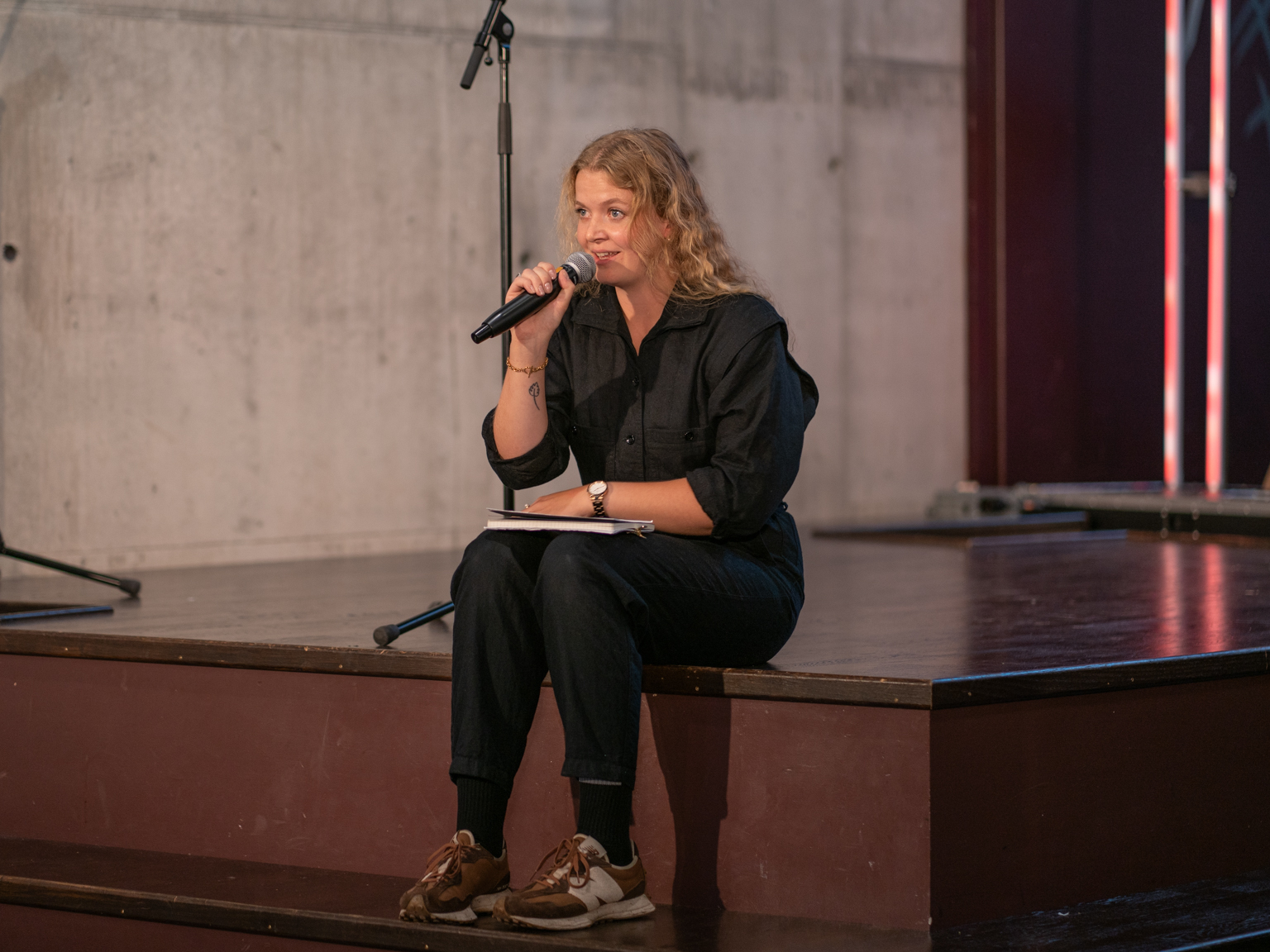
Start of studies 2024: speech from the head of the student council
Magda Thomsen's speech to the KHiO students.
Nowadays, you just can’t avoid talking about the global uncertainty that we’re all facing. So I will do just that.
This is a speech for you, and I hope you will take these words to heart and do something that can save somebody else’s world. You don’t have to save the whole world all at once. If somebody’s world is saved just for a moment, you may well end up influencing the rest of the world more strongly than what you originally intended when you saved that one person’s world.
The Oslo National Academy of the Arts is a big place, and this is a big day for you all. It’s a day you’ve been waiting for for months, or maybe even years? In a few years, you’ll remember these first few days here as though it all happened in a fever dream where nothing is really clear, and where you can’t recall who said what or if anything was even said at all. Even so, I hope you remember that everyone here feels, or has felt, that tingling sensation of being new here, of being a bit out of place and nervously excited. Remembering such things is important for your own personal growth, but also for allowing others to grow with you, alongside you or in addition to yourself. We all have our moments of complete failure and tremendous success. Here at the Academy, you will be celebrated for both those outcomes. There are few other places where your mistakes will lead to deeper insight and inspiration for what to do next, or to never do again. Be interested rather than interesting. Show, ask, learn! Take part in the discussions, and if things become a little too heavy or too overwhelming, just hang around and listen.
The Academy is both exciting and incomprehensible. It is also a place where people can be themselves, where they can have tactile experiences with materials, thoughts, discourses and opinions. It is a place where there is room for exploration. We take this seriously, and it is something we have to prove – we’re not sitting around in an ivory tower full of creative minds who keep their abilities to themselves. Art has to make its way out into the world! Our most important, our most comprehensible, systems of defence are often our artworks and imaginations. There is a reason why contemporary circuses are set up in refugee camps.
There is also a reason why municipalities in Norway are required to spend 3% of their budgets on art in public spaces. It’s not just to be nice to those of us who are artists and to provide us with a venue where we can express ourselves. But our need to express ourselves often comes from a desire to be seen and heard, because we have a message – a message that should and must reach out to those who need to hear it. A message doesn’t have to be all grave and serious and “world-beating” in order to be worthwhile. It doesn’t have to be groundbreaking in order to be important. Our messages are inherently valuable precisely because we believe they are. And our message is art.
In the late nineteenth century, the American economist Thorstein Veblen wrote about the earth’s “natural limit”, or breaking point, and that this limit must be respected so that both the earth and our economy can remain sustainable. And, yes, it was in the nineteenth century that he wrote this. This speaks to how the earth’s resources are limited and finite. These resources are regenerative, but with our modern-day technology, more and more of these resources need longer time to recover from human interventions, such as artificial insecticides, CFC gases in the ozone layer and rising sea levels across the globe. But enough about that.
One particular resource that is unlimited, and that the Academy is founded on, is all of us. It is founded on our imagination, our inspiration, our ability to create. Creating has no limits, because it often starts as an inner dialogue or in dialogue with our fellow students and teachers who constantly shape and challenge our artistic expression and message. Just as there is an inherent value in the earth’s resources being finite, there is likewise an inherent value in the fact that our creative skills – our capacity to not only feel empathy but to express it through something greater than ourselves – is infinite. This realisation goes hand in hand with allowing ourselves and others to grow along with – and because of – the mistakes and shortcomings we find in our art.
I’ve said it before, and I’m happy to say it again: art is going to save the world. Or if you look up and take a step back … then you will see that art is in fact saving the world, and that you are all a part of that.